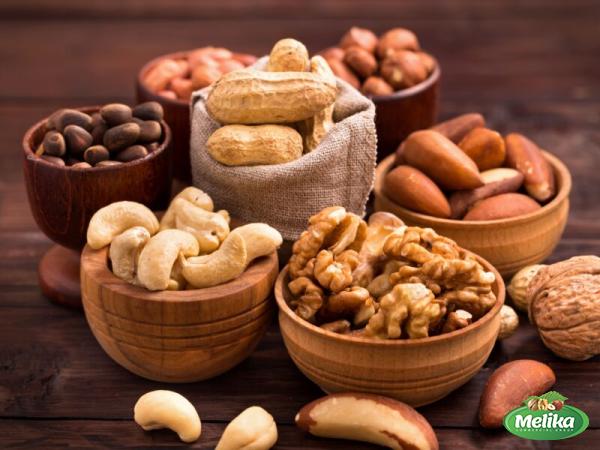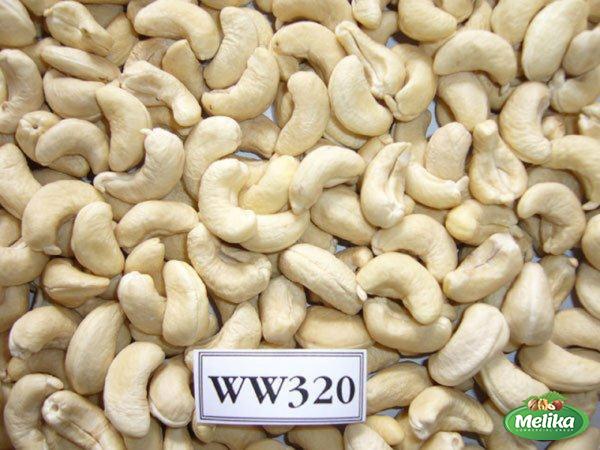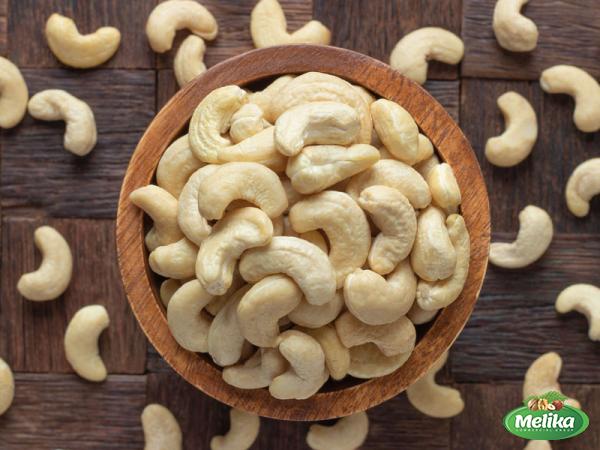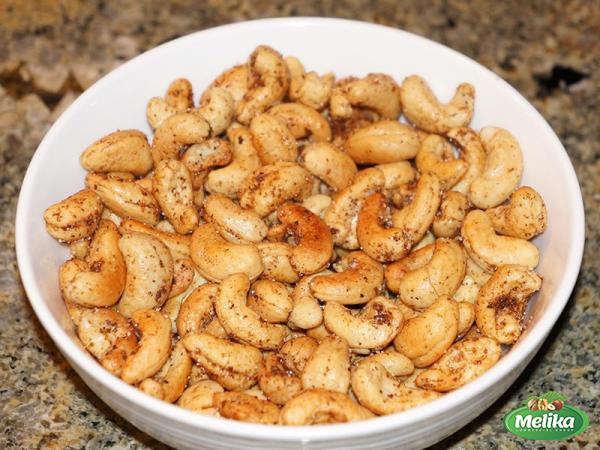The cashew industry has seen significant growth over the years, with cashew nuts becoming one of the most popular nuts globally. As the demand for cashew nuts continues to rise, numerous countries have emerged as major players in cashew nut production and export. This article provides an overview of some of the leading cashew exporting countries, highlighting their production capacities, export volumes, key challenges, and future prospects. 1. Vietnam: Vietnam is currently the world’s largest exporter of cashew nuts, accounting for a significant portion of the global market share. The country has established itself as a leading cashew producer due to favorable climatic conditions and a well-established cashew processing industry. Vietnam exports a considerable amount of raw cashew nuts, but it has also developed its processing capabilities, allowing it to capture higher value in the export market. However, factors such as competition from other cashew producing countries, rising labor costs, and sporadic supply chain issues pose challenges to Vietnam’s cashew industry. 2. India: India is among the top cashew exporting countries globally, renowned for its robust cashew processing and exporting industry. With a long history of cashew production, India has a significant advantage in terms of experience, infrastructure, and technological know-how. Indian cashew farmers primarily focus on producing high-quality nuts, meeting international standards and consumer demands. Despite challenges such as increasing production costs, quality control, and market competition, India remains a key player in the global cashew market. 3. Côte d’Ivoire: Côte d’Ivoire, also known as Ivory Coast, emerges as one of the largest cashew nut producers and exporters in Africa. The country’s favorable agricultural conditions, including suitable soil and climate, contribute to its substantial cashew production volumes. Côte d’Ivoire’s cashew sector has experienced significant growth, and the government is actively promoting cashew cultivation through improved farming practices and increased investments. However, challenges such as low processing capacities, limited infrastructure, and agricultural pests and diseases hinder the country’s potential for further growth in cashew exports. 4. Nigeria: Nigeria has a long history of cashew cultivation and is a major player in the global cashew nut market. The country holds vast potential to become a leading exporter due to its favorable climatic conditions and fertile lands for cashew cultivation.

nuts
 However, despite being the world’s largest producer of raw cashew nuts, Nigeria lags behind in cashew processing capabilities, resulting in a significant portion of its nut being exported in raw form. Encouraging value addition and improving processing infrastructure would enable Nigeria to enhance its export earnings and strengthen its position in the global cashew industry. 5. Brazil: Brazil boasts a significant presence in the global cashew market, both as a producer and exporter. It benefits from its ample agricultural land, favorable climate, and advanced processing facilities. Brazil’s cashew industry focuses on producing high-quality cashew nuts and cashew-related products, such as cashew butter and cashew oil, for the global market. However, Brazil faces challenges related to intense competition, market volatility, and limited value addition. Nonetheless, the country has the potential to maintain and expand its cashew export market share through innovation and product diversification. 6. Tanzania: Tanzania has made substantial progress in recent years and is increasing its role as a cashew exporter. The country’s cashew industry has received significant government support, leading to enhanced productivity and increased export volumes. By implementing policies to encourage smallholder cashew farmers and investing in processing facilities, Tanzania aims to boost the value addition process and capture a larger share of the global market. Challenges such as inconsistent supply chains, quality control, and limited access to international markets remain hurdles to be addressed for further growth. Conclusion: Cashew exporting countries play a vital role in meeting the global demand for cashew nuts. Vietnam, India, Côte d’Ivoire, Nigeria, Brazil, and Tanzania have emerged as major players in this industry, each with its unique advantages and challenges. These countries have significant potential for growth and can benefit from the increasing demand for cashew nuts worldwide. By addressing challenges related to production efficiency, value addition, quality control, and market competition, these countries can solidify their position as global leaders in cashew exports and contribute to the overall growth and development of the cashew industry. Leading the Cashew Export Market Vietnam has solidified its position as the world’s largest exporter of cashew nuts, largely due to its favorable climatic conditions and a well-established processing industry. The country produces a substantial amount of raw cashew nuts, and its processing capabilities have significantly improved, enabling it to capture higher value in the export market.
However, despite being the world’s largest producer of raw cashew nuts, Nigeria lags behind in cashew processing capabilities, resulting in a significant portion of its nut being exported in raw form. Encouraging value addition and improving processing infrastructure would enable Nigeria to enhance its export earnings and strengthen its position in the global cashew industry. 5. Brazil: Brazil boasts a significant presence in the global cashew market, both as a producer and exporter. It benefits from its ample agricultural land, favorable climate, and advanced processing facilities. Brazil’s cashew industry focuses on producing high-quality cashew nuts and cashew-related products, such as cashew butter and cashew oil, for the global market. However, Brazil faces challenges related to intense competition, market volatility, and limited value addition. Nonetheless, the country has the potential to maintain and expand its cashew export market share through innovation and product diversification. 6. Tanzania: Tanzania has made substantial progress in recent years and is increasing its role as a cashew exporter. The country’s cashew industry has received significant government support, leading to enhanced productivity and increased export volumes. By implementing policies to encourage smallholder cashew farmers and investing in processing facilities, Tanzania aims to boost the value addition process and capture a larger share of the global market. Challenges such as inconsistent supply chains, quality control, and limited access to international markets remain hurdles to be addressed for further growth. Conclusion: Cashew exporting countries play a vital role in meeting the global demand for cashew nuts. Vietnam, India, Côte d’Ivoire, Nigeria, Brazil, and Tanzania have emerged as major players in this industry, each with its unique advantages and challenges. These countries have significant potential for growth and can benefit from the increasing demand for cashew nuts worldwide. By addressing challenges related to production efficiency, value addition, quality control, and market competition, these countries can solidify their position as global leaders in cashew exports and contribute to the overall growth and development of the cashew industry. Leading the Cashew Export Market Vietnam has solidified its position as the world’s largest exporter of cashew nuts, largely due to its favorable climatic conditions and a well-established processing industry. The country produces a substantial amount of raw cashew nuts, and its processing capabilities have significantly improved, enabling it to capture higher value in the export market.
Specifications of nuts
 Vietnam’s competitive advantage lies in its ability to produce high-quality cashews at competitive prices. However, increased labor costs, supply chain issues, and competition from other cashew-producing countries pose challenges to the Vietnamese cashew industry. II. India: Robust Cashew Processing and Exporting Industry India is also a key player in the global cashew industry, renowned for its robust cashew processing and exporting industry. With a long history of cashew production, India benefits from its experience, well-developed infrastructure, and technological know-how. Indian cashew farmers focus on producing high-quality nuts that meet international standards and consumer demands. Despite challenges such as increasing production costs, quality control, and market competition, India continues to thrive as a major exporter of cashew nuts. III. Côte d’Ivoire: Emerging African Cashew Exporter Côte d’Ivoire, or Ivory Coast, has emerged as one of the largest cashew nut producers and exporters in Africa. The country’s favorable agricultural conditions, including suitable soil and climate, contribute to its substantial cashew production volumes. In an effort to promote cashew cultivation and increase export volumes, the Ivorian government has introduced improved farming practices and increased investments. However, limited processing capacities, inadequate infrastructure, and challenges related to agricultural pests and diseases hinder the country’s potential for further growth in cashew exports. IV. Nigeria: Untapped Potential for Cashew Exports Nigeria holds vast potential to become a leading exporter of cashew nuts. With favorable climatic conditions and fertile lands for cashew cultivation, Nigeria is the world’s largest producer of raw cashew nuts. However, the country lags behind in cashew processing capabilities, resulting in a significant portion of its nut being exported in raw form. Encouraging value addition and improving processing infrastructure would enable Nigeria to enhance its export earnings and strengthen its position in the global cashew industry. V. Brazil: Diversity and Quality in Cashew Exports Brazil has a significant presence in the global cashew market as a producer and exporter. The country benefits from ample agricultural land, a favorable climate, and advanced processing facilities. Brazil’s cashew industry focuses on producing high-quality cashew nuts and related products like cashew butter and cashew oil for the global market. However, Brazil faces challenges related to intense competition, market volatility, and limited value addition.
Vietnam’s competitive advantage lies in its ability to produce high-quality cashews at competitive prices. However, increased labor costs, supply chain issues, and competition from other cashew-producing countries pose challenges to the Vietnamese cashew industry. II. India: Robust Cashew Processing and Exporting Industry India is also a key player in the global cashew industry, renowned for its robust cashew processing and exporting industry. With a long history of cashew production, India benefits from its experience, well-developed infrastructure, and technological know-how. Indian cashew farmers focus on producing high-quality nuts that meet international standards and consumer demands. Despite challenges such as increasing production costs, quality control, and market competition, India continues to thrive as a major exporter of cashew nuts. III. Côte d’Ivoire: Emerging African Cashew Exporter Côte d’Ivoire, or Ivory Coast, has emerged as one of the largest cashew nut producers and exporters in Africa. The country’s favorable agricultural conditions, including suitable soil and climate, contribute to its substantial cashew production volumes. In an effort to promote cashew cultivation and increase export volumes, the Ivorian government has introduced improved farming practices and increased investments. However, limited processing capacities, inadequate infrastructure, and challenges related to agricultural pests and diseases hinder the country’s potential for further growth in cashew exports. IV. Nigeria: Untapped Potential for Cashew Exports Nigeria holds vast potential to become a leading exporter of cashew nuts. With favorable climatic conditions and fertile lands for cashew cultivation, Nigeria is the world’s largest producer of raw cashew nuts. However, the country lags behind in cashew processing capabilities, resulting in a significant portion of its nut being exported in raw form. Encouraging value addition and improving processing infrastructure would enable Nigeria to enhance its export earnings and strengthen its position in the global cashew industry. V. Brazil: Diversity and Quality in Cashew Exports Brazil has a significant presence in the global cashew market as a producer and exporter. The country benefits from ample agricultural land, a favorable climate, and advanced processing facilities. Brazil’s cashew industry focuses on producing high-quality cashew nuts and related products like cashew butter and cashew oil for the global market. However, Brazil faces challenges related to intense competition, market volatility, and limited value addition.
buy nuts
 Innovation and product diversification will be crucial for Brazil to maintain and expand its cashew export market share. VI. Tanzania: Improving Role in Cashew Exports Tanzania is making substantial progress in enhancing its role as a cashew exporter. The cashew industry has received significant government support, leading to increased productivity and export volumes. Through policies aimed at encouraging smallholder cashew farmers and investment in processing facilities, Tanzania aims to boost value addition and capture a larger share of the global market. However, inconsistent supply chains, quality control issues, and limited access to international markets remain hurdles to be addressed for further growth. VII. Challenges and Opportunities in the Cashew Export Market While these cashew exporting countries enjoy significant market shares, they also face challenges. Rising labor costs, supply chain disruptions, market competition, and the need to meet stringent quality standards pose constant challenges to cashew exporters. Moreover, fluctuations in global demand and market prices can impact their export earnings. However, opportunities abound in expanding global demand for healthy and natural snacks, as well as for cashew by-products such as cashew butter and cashew oil. VIII. Future Prospects and Strategies for Cashew Exporters To remain competitive in the global cashew market, exporters need to focus on several strategies. These include investing in technology and modern processing facilities, enhancing efficiency and productivity in cashew cultivation, improving quality control processes, and exploring potential niche markets. Collaboration between cashew exporters and government agencies can also lead to the development of policies and initiatives that support the growth of the cashew industry. IX. Sustainable Practices: The Key to Long-Term Success Sustainability plays a crucial role in the success of cashew exporting countries. Embracing sustainable practices in cashew cultivation, processing, and trade is essential to ensure the long-term viability of the industry. This includes promoting responsible farming practices, ensuring fair trade and labor practices, and adopting environmentally friendly processing techniques. X. Conclusion: Cashew Exporting Countries Shape the Global Market Cashew exporting countries, such as Vietnam, India, Côte d’Ivoire, Nigeria, Brazil, and Tanzania, play a vital role in meeting the global demand for cashew nuts. These countries possess unique advantages in terms of production capacities, processing capabilities, and favorable agricultural conditions. However, they also face challenges that require strategic planning and collaboration to overcome. By addressing these challenges and seizing opportunities, these countries can solidify their positions as global leaders in cashew exports and contribute to the overall growth and development of the cashew industry.
Innovation and product diversification will be crucial for Brazil to maintain and expand its cashew export market share. VI. Tanzania: Improving Role in Cashew Exports Tanzania is making substantial progress in enhancing its role as a cashew exporter. The cashew industry has received significant government support, leading to increased productivity and export volumes. Through policies aimed at encouraging smallholder cashew farmers and investment in processing facilities, Tanzania aims to boost value addition and capture a larger share of the global market. However, inconsistent supply chains, quality control issues, and limited access to international markets remain hurdles to be addressed for further growth. VII. Challenges and Opportunities in the Cashew Export Market While these cashew exporting countries enjoy significant market shares, they also face challenges. Rising labor costs, supply chain disruptions, market competition, and the need to meet stringent quality standards pose constant challenges to cashew exporters. Moreover, fluctuations in global demand and market prices can impact their export earnings. However, opportunities abound in expanding global demand for healthy and natural snacks, as well as for cashew by-products such as cashew butter and cashew oil. VIII. Future Prospects and Strategies for Cashew Exporters To remain competitive in the global cashew market, exporters need to focus on several strategies. These include investing in technology and modern processing facilities, enhancing efficiency and productivity in cashew cultivation, improving quality control processes, and exploring potential niche markets. Collaboration between cashew exporters and government agencies can also lead to the development of policies and initiatives that support the growth of the cashew industry. IX. Sustainable Practices: The Key to Long-Term Success Sustainability plays a crucial role in the success of cashew exporting countries. Embracing sustainable practices in cashew cultivation, processing, and trade is essential to ensure the long-term viability of the industry. This includes promoting responsible farming practices, ensuring fair trade and labor practices, and adopting environmentally friendly processing techniques. X. Conclusion: Cashew Exporting Countries Shape the Global Market Cashew exporting countries, such as Vietnam, India, Côte d’Ivoire, Nigeria, Brazil, and Tanzania, play a vital role in meeting the global demand for cashew nuts. These countries possess unique advantages in terms of production capacities, processing capabilities, and favorable agricultural conditions. However, they also face challenges that require strategic planning and collaboration to overcome. By addressing these challenges and seizing opportunities, these countries can solidify their positions as global leaders in cashew exports and contribute to the overall growth and development of the cashew industry.











Your comment submitted.